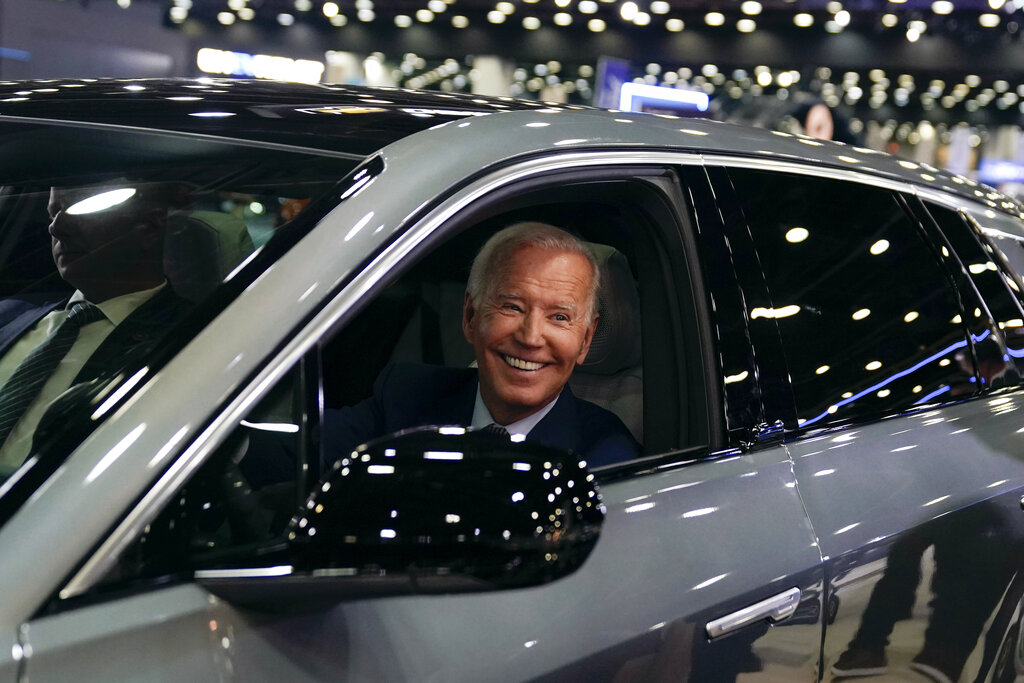Biden’s Green Vehicle Push Is Driving Auto Unions Toward Destructive Strike
Not only are the political ramifications deep if the strike proceeds, but the Anderson Economic Group also estimates the economic impact will hit $5 billion in 10 days.

On Friday, the United Auto Workers said over 97 percent of their 150,000 members who work for Detroit Three automakers gave union leaders their approval to call a strike if they cannot reach a tentative contract by a September 14 deadline.
“Our goal is not to strike; our goal is to bargain a good contract for our members. But we prepare for a strike so that we’re ready no matter what happens,” the UAW president, Shawn Fain, told members on a broadcast that ran live from the UAW Local 862 near Ford Motor’s assembly plant in Kentucky.
Mr. Fain said that in the talks with General Motors, Ford and Stellantis, management has not yet made counterproposals to the membership’s demands.
The core issue for the UAW is the Biden administration’s goal of decarbonizing the economy by 2050 and pushing the American auto industry to accelerate a transition to electric vehicles.
The Environmental Protection Agency this April proposed new rules that could result in two-thirds of the new vehicle market shifting to EVs by 2032.
In June, the Biden administration said it intended to invest $2 billion from last year’s Inflation Reduction Act to accelerate the Detroit Three toward manufacturing EVs.
UAW members are deeply concerned factories for electric vehicles will not employ the same numbers as the current plants do; they are also concerned that the battery factories supplemented by the American government, many of which receive more than a billion dollars per year from the government, will either offer low-paying jobs or be non-union shops.
Not only are the political ramifications deep if the strike proceeds, but the Anderson Economic Group also estimates the economic impact will hit $5 billion in 10 days.
Last week, President Biden issued a statement about the possibility of a strike that urged both to come to an agreement and placed the brakes ever so slightly on his climate change agenda by saying, “I support a fair transition to a clean energy future.”

If the UAW does strike, it will happen the day before what locals call “car prom,” the North American International Detroit Auto Show, kicks off a prestigious event that showcases the biggest, best and newest in American cars. It is also a big economic driver in the area.
Last year, Mr. Biden preened at the show as he bragged about his electric vehicle push, including the billions of government taxpayer dollars in investments in battery plants as he climbed into a silver electric Cadillac SUV.
United Auto Workers leadership has withheld their reelection endorsement for Mr. Biden until the union’s concerns about the auto industry’s transition to electric vehicles are addressed.
Creators.com

